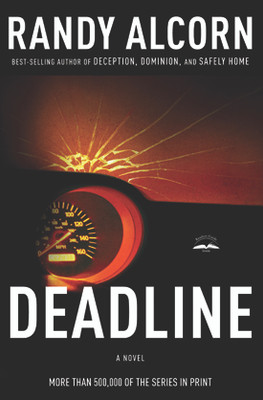Some Christians view fiction as the opposite of truth. But sometimes it opens eyes to the truth more effectively than nonfiction.
There’s still a stereotype perpetuated by believers who seem to take pride in saying, “I never read Christian fiction because it’s so syrupy and unrealistic; it’s poor quality.” I hear this so often that I have a standard response: “How do you know that if you never read Christian fiction?” Actually, it’s just the popular thing to say, but those who say it are uninformed. Anyone who has actually read much fiction written by Christians in the last ten years knows there are many high quality stories, well-researched and well-written, dealing realistically with all kinds of serious issues. They are no more predictable or preachy than bestselling or award-winning secular novels.
The second bestselling book of all time is Pilgrim’s Progress, a work of fiction written by John Bunyan in the 1670s. It may also be the second most influential book in history.
Jesus taught in parables. He told stories to capture imaginations and move hearts. The reason I started writing fiction in the early 90s was that I love good stories, and I believe they have a Trojan Horse effect.
People open the doors of their minds to a story. The Trojan Horse comes in and the next thing you know the soldiers sneak out and take over the city of the mind. It’s not manipulation, it’s a way of communicating that captures the imagination and moves the heart.
Here’s an example. My novel Deadline has a subplot that involves abortion. Jake Woods was involved with an abortion decision in his past and is plagued by guilt, and ends up in a group of men talking about abortion.
Years ago, our daughters played volleyball and one of the team moms happened to be an outspoken pro-choice advocate. One of the other moms gave her Deadline. I thought, “Oh no! I wish she’d given her one of my other novels instead!"
As much as I knew about the power of fiction, I assumed it was a bad introduction to my writing for this particular woman. Three weeks later, I was sitting at a volleyball game. I hadn't seen this woman since she’d been given the book. I saw her coming, walking rapidly toward me.
I braced myself, thinking “Here it comes.”
She pointed her finger at me, and said, “Somebody gave me that novel of yours!” Uncomfortable pause. Then she said, “I loved it!”
I was shocked. She asked, “You know what my favorite part of that novel was?”
“I don’t have a clue."
This non-Christian woman said, “When you showed the conception of a child from Heaven’s viewpoint.”
That was the single most dramatically prolife aspect of the book, and it was her favorite part! I don’t know if she totally reversed her position on abortion, but I know that it profoundly affected her thinking in a way that simply would not have happened just by reading my non-fiction books on the subject. The truth is, she probably would never have read books titled Why Prolife? or ProLife Answers to ProChoice Arguments. And if she had, her defenses would have been up. That’s the power of fiction—to get past the worldview gate-keeper and touch both the heart and the mind.




